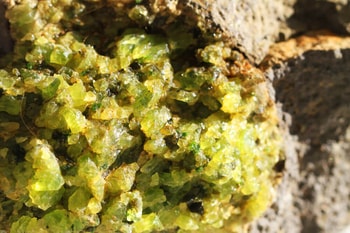Netherlands-based climate tech company Paebbl has commissioned a demonstration-scale facility in Rotterdam that can continuously convert carbon dioxide into construction materials through mineralisation.
The pilot plant completed its first 24-hour continuous production run on 26 March, marking what the company described as a world first for continuous CO2 mineralisation at this scale.
The project has demonstrated that a process that’s typically confined to batch operations or laboratory settings can now be run continuously – a development Paebbl says is critical to its technology’s future commercialisation.
The process uses olivine to permanently lock away CO2 by converting it into supplementary cementitious materials – fine powders used to strengthen concrete. The company sees this as a route to reducing emissions in the cement sector, which accounts for more than 8% of global CO2 emissions.
“This plant takes us one step closer to delivering high-performance materials and climate impact at a scale that matters,” said Andreas Saari, Co-CEO and co-founder of Paebbl.

The chemical properties of olivine make it a suitable catalyst for the manufacture of CO2 storage materials.
The demo plant was developed at Paebbl’s R&D site in Rotterdam with engineering partners Spie and Vicoma. Finance was provided by the Netherlands Enterprise Agency. The project was completed in 18 months, which the company said is faster than typical timelines in industrial construction.
This form of continuous CO2 mineralisation over extended periods presents technical challenges due to the need to maintain stable high temperatures, pressure and chemical reactions. Paebbl’s ability to run the process continuously demonstrates that the technology is technically reliable and it makes it more suitable be scaled for commercial use in industry.
“We’re now well-positioned to ramp up production and gather the data we need to move forward to full commercial scale,” said Arnold Choi, Vice-President of Engineering & Deployment.
CO2 mineralisation, where CO2 is chemically locked away in cement, is already part of a global CO2 removal market that is experiencing major growth. It is expected to reach a value of $3.25bn by 2034, fuelled by the growing investment in carbon reduction solutions.
North America, led by companies like CarbonCure and CarbiCrete in Canada, currently dominates the market. However, the EU has set a target of increasing the use of carbon removal technologies by a factor of 1000 by 2030.









